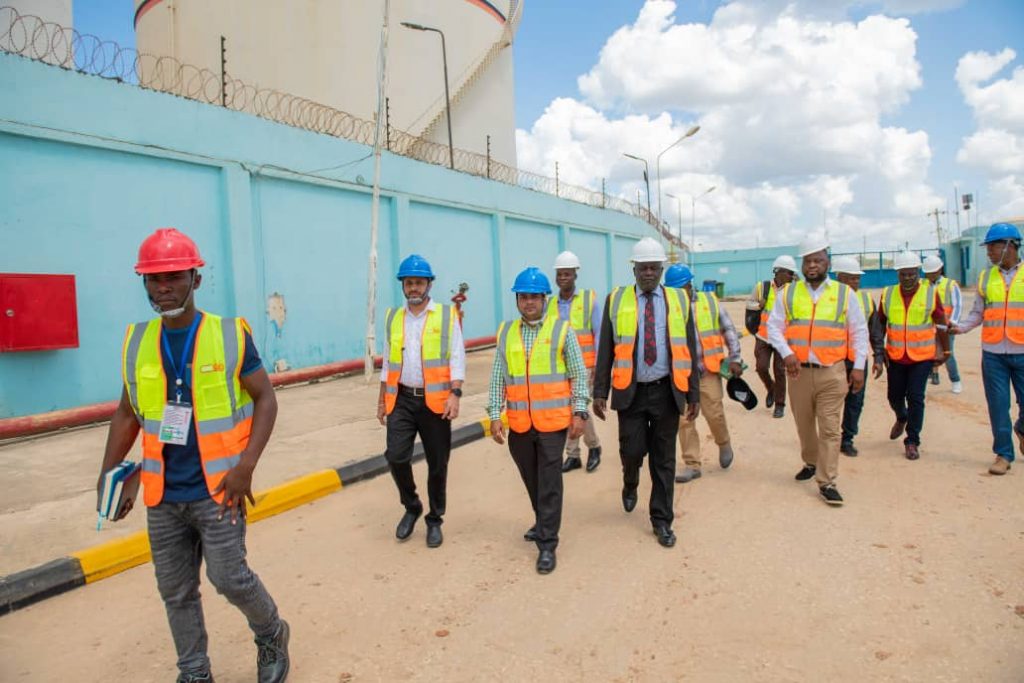Nocma gets fuel supply assurance
International fuel suppliers contracted to National Oil Company of Malawi (Nocma) have committed to ensure security of supply amid disruptions of the global supply chains worsened by the Russia-Ukraine war.
The two Tanzanian-based suppliers, Lake Oil Limited and Camel Oil Limited, separately gave the assurances on Thursday at their respective head offices in Dar es Salaam, Tanzania when the Parliamentary Committee on Natural Resources and Climate Change visited them to appreciate their operations and challenges faced.

Briefing the delegation, Lake Oil Limited general manager Rajesh Chidambaram said his company pre-orders supplies for up to three months and committed to prioritise Nocma and Malawi at large to get a share of the fuel.
He said: “We are there for Malawi, we will always be there for Nocma and be assured that supply will not be disturbed.”
Chidambaram, whose company also supplies fuel to Malawi from Beira Port in Mozambique, said they have adequate reserves and that 30 million litres ordered by Nocma were currently being delivered.
On his part, Amsons Group director of finance Bobby Sumanth, the parent company for Camel Oil Limited, said that since the signing of their contract with Nocma in September 2021 they have worked hard to deliver fuel despite facing payment delays.

“We have continued to supply Nocma at our own risk to make sure that Malawi has fuel,” Sumanth said, adding that about 8.9 million litres of fuel were being hauled into Malawi this week.
He said Camel Oil supplied Nocma at lower premiums despite changes in prices after implementation of the contract was delayed by a protracted procurement controversy in September 2020.
In her brief at both firms, Nocma deputy chief executive officer Hellen Buluma said the suppliers have helped the country avert a potential fuel crisis due to the foreign exchange shortages.
On Camel Oil, she said: “We signed a contract last year [in September] and the performance has been the best. They have been open-minded and have delivered on credit.
“More recently, Camel Oil delivered eight million litres without any confirmation of our letters of credit through the Reserve Bank of Malawi to international banks.”
Buluma said Lake Oil, like Camel Oil, did not revise upwards its contract price despite a year’s delay to sign. She said the two companies only asked for a revision in January this year when global oil prices plummeted.
She said Nocma has a $75 million (about K60 billion) facility with the Trade and Development Bank (TDB), formerly the PTA Bank, which it pays through letters of credit issued by RBM.
Buluma said that while awaiting the 90 days or three months maturity of the letters of credit, the two suppliers have usually sourced their own resources to ensure sustained supply to Nocma.
In his remarks, Parliamentary Committee on Natural Resources and Climate Change chairperson, Werani Chilenga, said the visit to the two suppliers has helped to clear some misconceptions that marred the awarding of their contracts.
He said contrary to suggestions that they lacked capacity, his committee was overwhelmed with what they saw.
It was learnt during the visit that Lake Oil had a storage capacity of about 85 million litres in Dar es Salaam. In contrast, the capacity of Nocma’s strategic fuel reserves is estimated at 60 million litres.
Lake Oil also operates in Zambia, the Democratic Republic of Congo, Rwanda and Kenya besides Mozambique and Tanzania. On the other hand, Camel Oil is one of the top five oil companies in Tanzania, but also serves others in the East African Community.
The award of the supply contracts to the two stirred controversy. The issue further pitted Nocma on the collision course with Malawi Energy Regulatory Authority. In the aftermath of the stand-off, a Cabinet minister and a presidential aide were among a trio arrested for allegedly attempting to influence the contracts award by Nocma.
On Friday, the Malawi delegation on the Nocma-sponsored trip is scheduled to visit Malawi Cargo Centres Limited and Tazara to explore the possibility of having fuel transported by rail to Mbeya in Tanzania to cut the transport costs.





